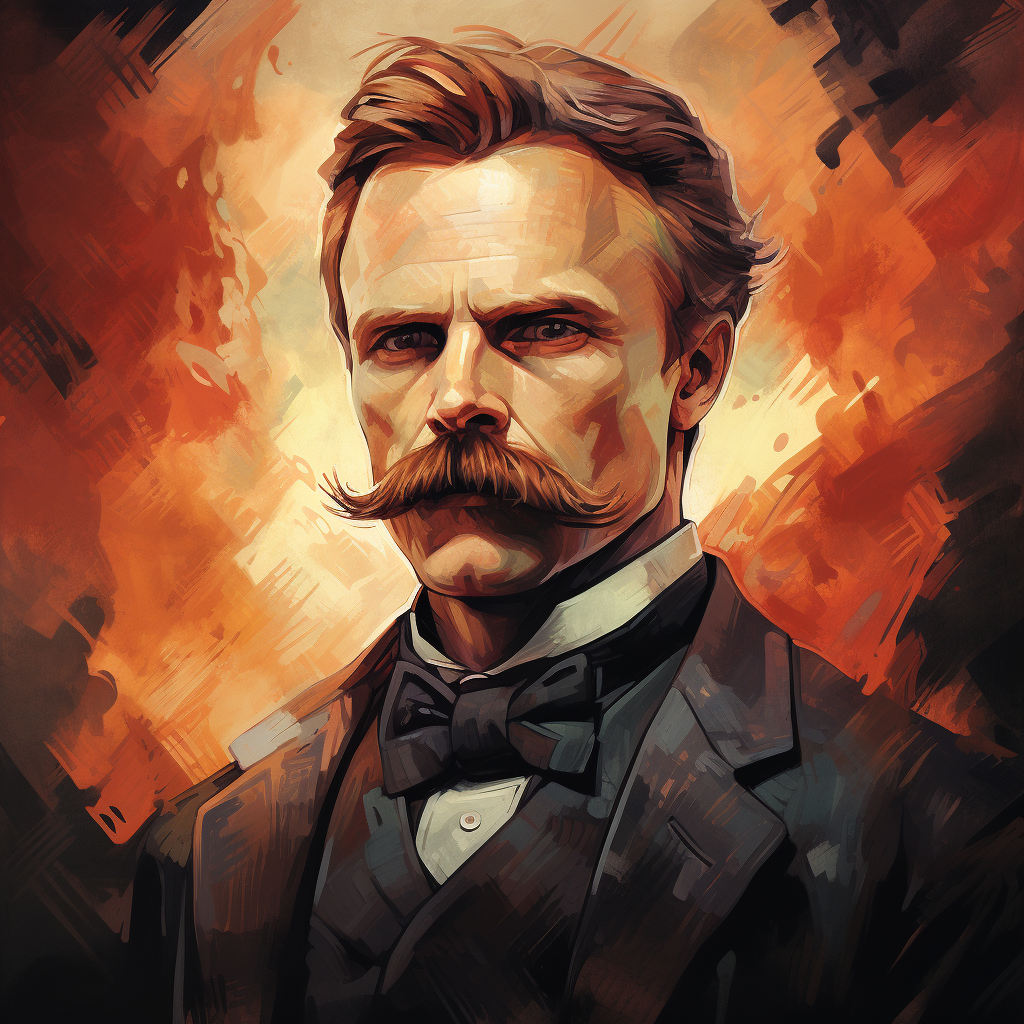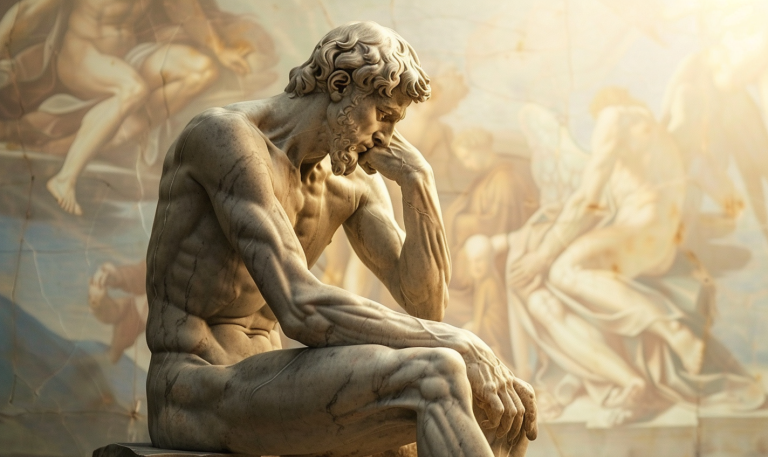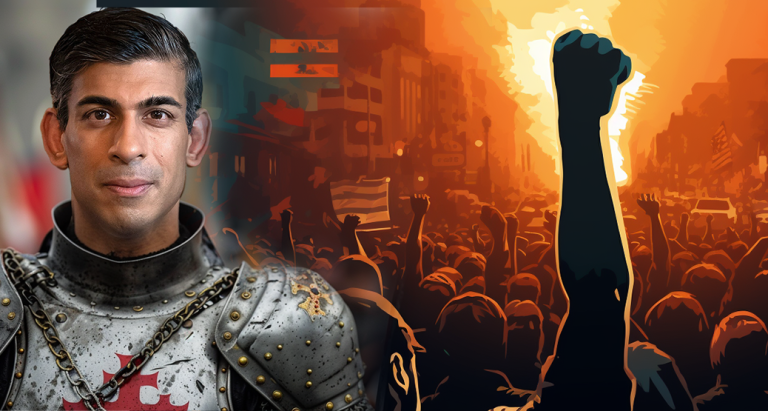
In the annals of philosophy, few concepts evoke as much intrigue and controversy as Friedrich Nietzsche’s Übermensch, or Superman. Born out of Nietzsche’s magnum opus, ‘Thus Spake Zarathustra,’ the Übermensch represents a profound vision for human potential and personal transformation. Nietzsche famously declared, ‘Man is something that should be overcome.’ But what does this mean, and how can it unlock a better life?
“I teach you the Superman, Man is something that should be overcome. What have you done to overcome him?”
Friedrich Nietzsche – Thus Spake Zarathustra.
As I’ve often said in other works, you can’t study philosophy without encountering Nietzsche and his two most famous concepts of the Will to Power and the personal doctrine of Self Overcoming. The man is a giant, a profound influence on all modern philosophers, psychologists, psychiatrists and so on. Wherever there’s philosophy of mind, or the subject is morals, power, hierarchy, self-interest, ethics and so on, you’ll find his influence. In the rich tapestry of philosophical thought, few voices resonate as provocatively as that of Friedrich Nietzsche.
In ‘Thus Spake Zarathustra,’ he famously said, ‘Man is something that should be overcome, “But to truly grasp the significance of Nietzsche’s proclamation, it is essential to understand the broader context of his philosophical framework. Nietzsche lived during a time of profound societal upheaval, not too dissimilar to what we experience today, indeed many thinkers argue that Nietzsche saw this all coming, having witnessed the erosion of traditional religious beliefs and moral values that he recognised as essential aspects of European/Western civilisation, without which he predicted it would all fly apart like the spokes of a wheel flinging themselves outward from its centre. In this turbulent milieu, he embarked on a relentless quest to reevaluate and redefine the fundamental tenets of human existence.
‘Man should be overcome,’ and we start with the self, so for Nietzsche it is a doctrine of ‘Self Overcoming.’ We accept nothing inferior or limiting within ourselves, Nietzsche urges us to transcend our limitations and embrace a path of continual self-transformation in which we reject complacency and instead, relentlessly pursue self-mastery. We do this by turning our share of the universal Will, which is a ‘Will to Power,’ inwards at ourselves, demanding that we be our best selves pursuing excellence at all costs, never giving up, widening our abilities, and expanding our capabilities by challenging our limitations. This is the path of the Superman, the Overman or ‘Ubermensch,’ in German. Such a man remains young at heart, vibrant of spirit, full of vital energies as he transcends the limitations and the morals of the herd, those common men who choose not to access the ‘noble spirit of overcoming,’ and see no need to stand apart from their fellows.
Rather than viewing humanity as a fixed and immutable entity, Nietzsche invites us to envision a future where individuals transcend their current state of being. This statement challenges the complacency inherent in human nature and impels us to strive for greater heights of excellence, self-improvement, and personal growth. In order to do this, we must confront our inherent weaknesses and be prepared to transcend societal norms if that is our path. So, if we make art, then it must be the best art, if we write books, then they must be the best books, if we tend a garden, it must be the best garden that we can make it. If we take our pet dog for a walk, it must be the best walk possible. If we run a company then we must excel at it, if we work as an employee then we should be the best employee, whatever we pursue, even lifting weights in our local gym, then we must lift the heaviest ones that we can manage. There’s no room for equality in this, we either exceed our compatriots or be inferior to them. Nietzsche takes a very dim view of those who would want to be equal or champion the cause of equality, because it often demands that everyone be at the lowest common denominator and restrictive of those that would want to rise above it. No man is equal to himself at two different times in the same day, so equality with others is a nice idea, but not a practical reality. The universe as it stands always produces unequal outcomes, that’s what the laws of physics do. Nietzsche advises us, to not only be at peace with this, but also to revel in it, pushing ourselves to ever greater heights as we do so. We celebrate our own successes, modesty is a waste of time according to Nietzsche, but he also encourages us to celebrate the triumphs of others, particularly those close to us, so that they too can know the joy of ‘Self Overcoming,’ and what it is to rise above the common herd, thus joining the ranks of the Ubermensch, the ‘Overman, the Superman.’
“Nobody is more inferior than those who insist on being equal.”
― Friedrich Nietzsche
Later thinkers such as the brilliant Psychologist Carl Jung, or existentialists such as Jean Paul Sartre, or Albert Camus would draw upon these ideas and incorporate them into their works when talking about the need to live authentically, true to yourself as a unique human being, not like any other. Nietzsche challenges us to confront our deepest fears, embrace our inherent potential, and strive for a future defined by our own self-created values. As we navigate the complexities of existence, let us heed Nietzsche’s call to transcendence and embrace the boundless possibilities of the human spirit unlocking the key to a better, more fulling life as we do so, creating our own values and forging our own destiny along the way.
This is not an easy path, there will be times when we find it difficult, that obstacles block our way, that sickness, suffering, and malice blocks our path, but they too must be overcome. We’re in an existential battle with the rest of the universe and we must triumph because our struggle against the forces of chaos, the tyranny of the herd and those who would lead it dignify our existence and provide meaning where there would be none. We must remind ourselves that:
“Whatever doesn’t kill me makes me stronger.”
Friedrich Nietzsche – Twilight of the Idols.
Where the universe may present us with problems, we must instead see an opportunity for our share of the Will to Power to discharge itself, because that is overcoming, where there’s danger, there’s excitement, but also the potential for growth.

